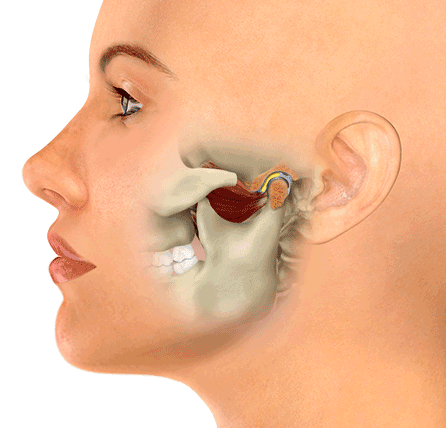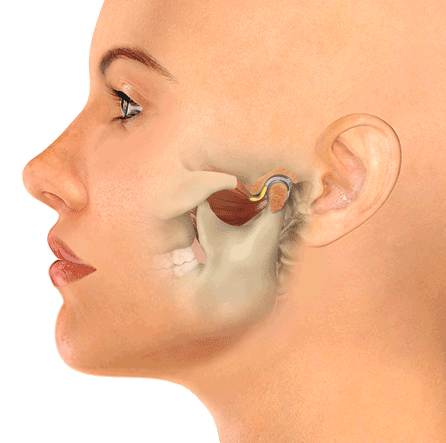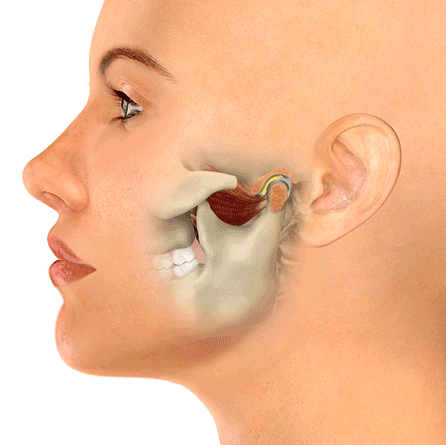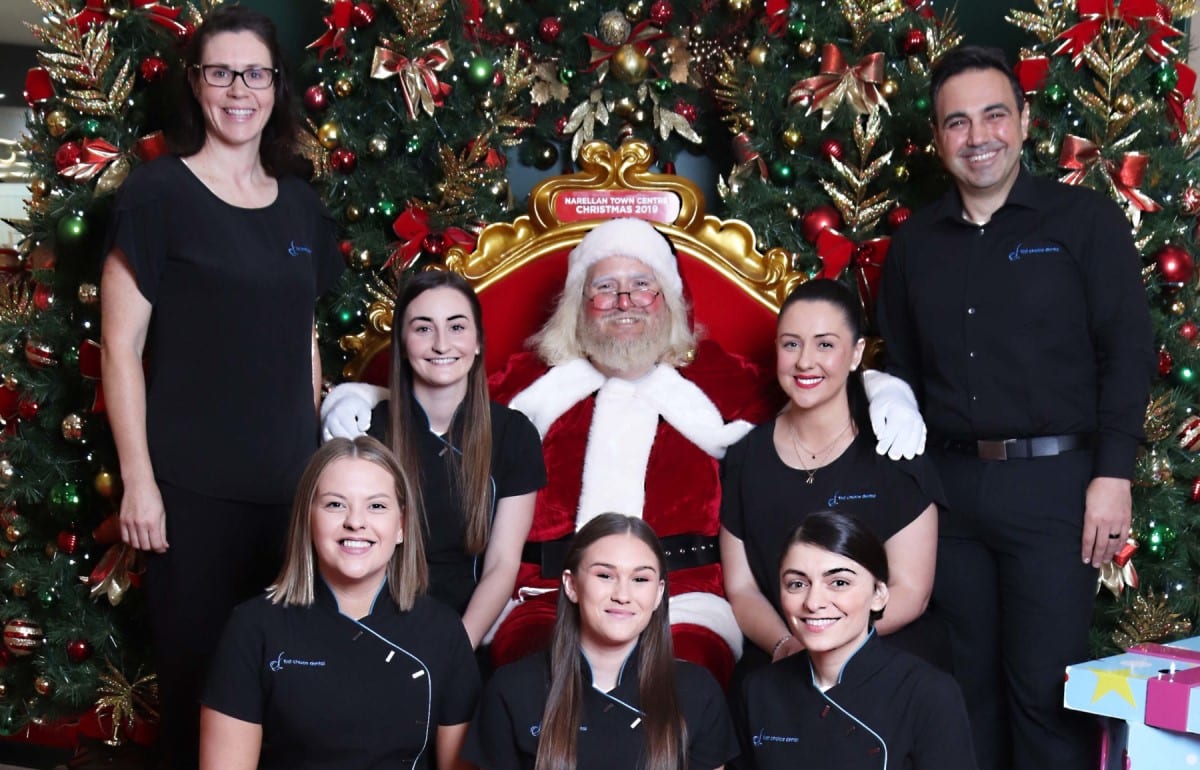TMD “Temporomandibular Joint Disorder”
These are all symptoms related to TMJ and if left untreated can impact your daily life significantly.
Why choose us?
This image shows how the temporomandibular joint (TMJ) should work when functioning normally. The yellow disc sits in its correct position, moving smoothly as the jaw opens and closes. This natural alignment and movement are essential for a comfortable, pain-free jaw.
When your jaw pops or clicks, it’s often due to the disc within the jaw joint (shown in yellow in the image) sitting too far forward from the jaw bone (the condyle). As you open or close your jaw, this disc may momentarily click or pop back into place, allowing the jaw to continue moving normally. This condition, known as anterior disc displacement with reduction, is common and can be felt as a slight shift or heard as a clicking sound during jaw movement.
An “open lock” occurs when the jaw opens too wide and gets stuck in that position, making it very difficult to close. This condition, also known as subluxation or dislocation, can be painful and often needs professional help to correct. If this happens, please call us right away for assistance.
Read more about TMJ - Temporomandibular Joint Disorder
Because there is no singular cause or treatment for TMJ, many people find themselves going from one doctor or dentist to another without any success.
At First Choice Dental we believe in the benefits of practicing holistic dentistry which means we look at not only how the rest of the body but also your daily life, habits, activities and stressors effect your mouth, including the facial muscles and joints that support it.
Your TMJ may be the result of a number of different issues including injury or misalignment of the teeth or jaw, bruxism, poor posture, arthritis, airway and breathing difficulties and stress. We’ll work with you to pin point the triggers of your TMJ and find the best treatment for you.
TMJ related pain shouldn’t be something you have to live with. Call us today to book a full facial muscles assessment so we can help you start living a pain free and happier life.
Useful Links
Book an Appointment
by calling us on 02 4647 4570
Our Location
Suite 3, 20 Somerset Ave Narellan NSW 2567
Connect with Us
©2008- First Choice Dental. All right reserved. Narellan Dentist





